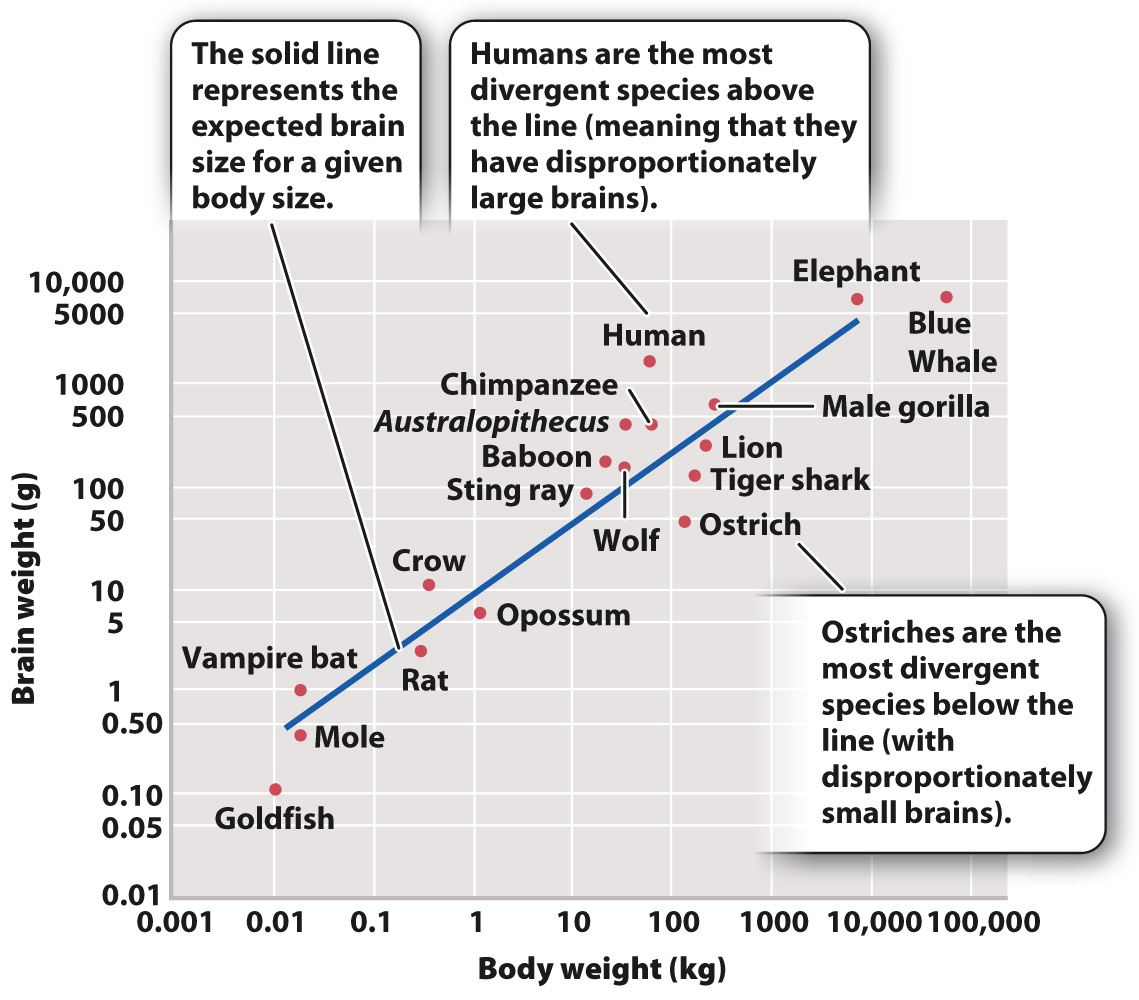Humans have large brains relative to body size.
In mammals, brain size is typically correlated with body size. Humans are relatively large-

497
What factors acted as selective pressure for the evolution of the large human brain? Again, speculation is common, but because a large brain is metabolically expensive to produce and to maintain, we can conclude that the brain has adaptive features that natural selection acted in favor of. What are the selective factors? Here are some possibilities:
- Tool use. Bipedalism permitted the evolution of manual dexterity, which in turn requires a complex nervous organization if hands are to be useful.
- Social living. Groups require coordination, and coordination requires some form of communication and the means of integrating and acting upon the information conveyed. One scenario, for example, sees group hunting as critical in the evolution of the brain: Natural selection favored those individuals who cooperated best as they pursued large prey.
- Language. Did the evolution of language drive the evolution of large brains? Or did language arise as a result of having large brains? Again, we will probably never know, but it is tempting to speculate that the brain and our extraordinary powers of communication evolved in concert.
Probably, as with bipedalism, there was no single factor but a mix of elements that worked together to result in the evolution of large brain size. We tend to focus on brain size because it is a convenient stand-
498
The human brain evolved through natural selection. What we have today is a learning machine capable of generating many more skills and abilities than just those that directly enhance evolutionary fitness. For example, let’s assume that the brain evolved to make group hunting more efficient. The result is that the brain does indeed enhance our ability to hunt together, but there are numerous by-